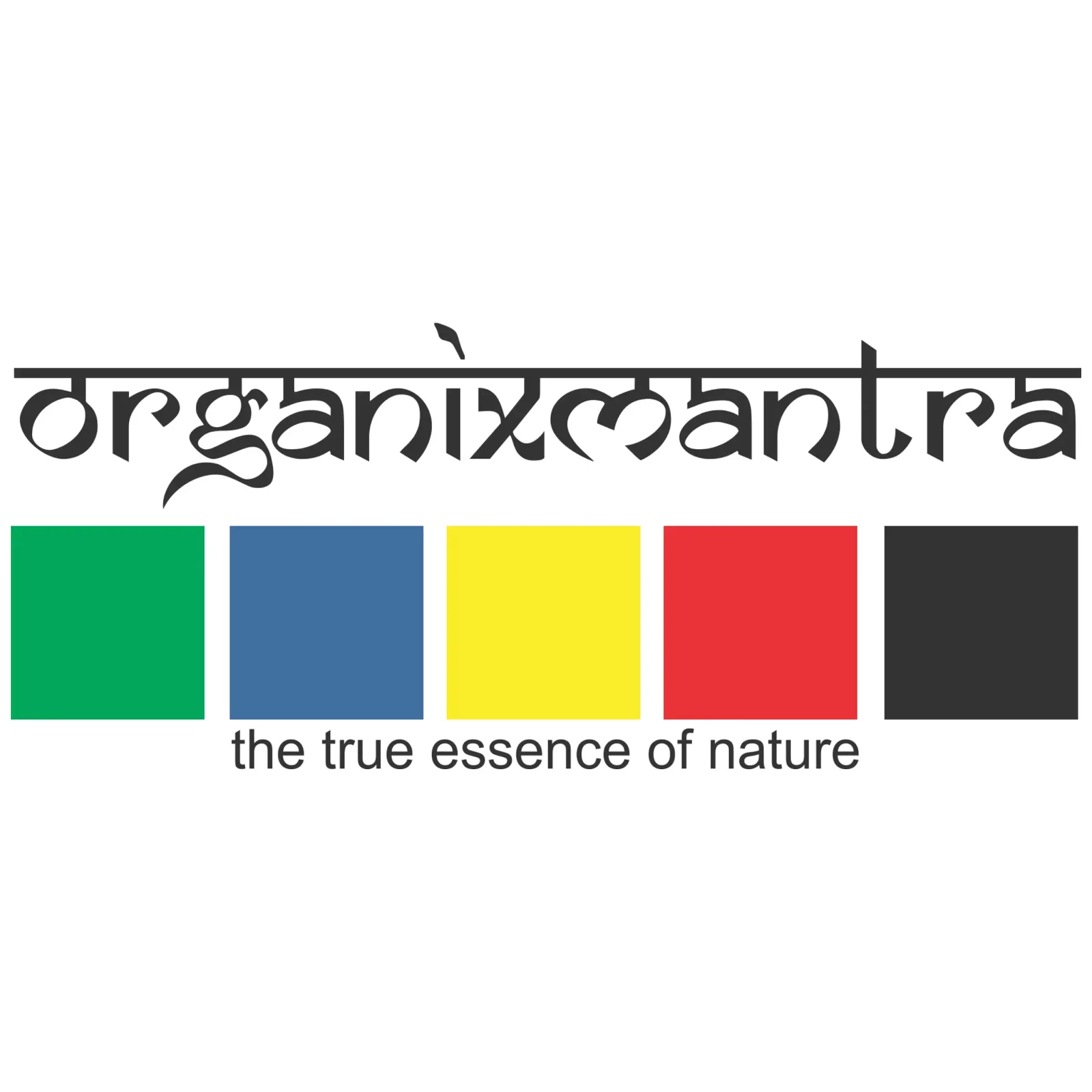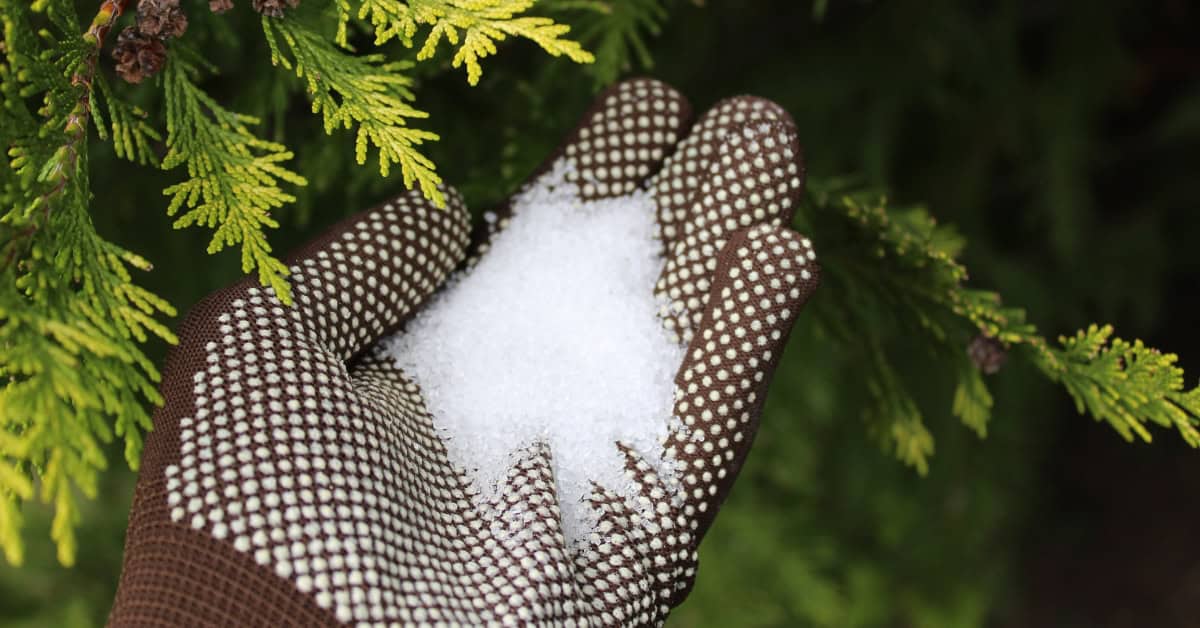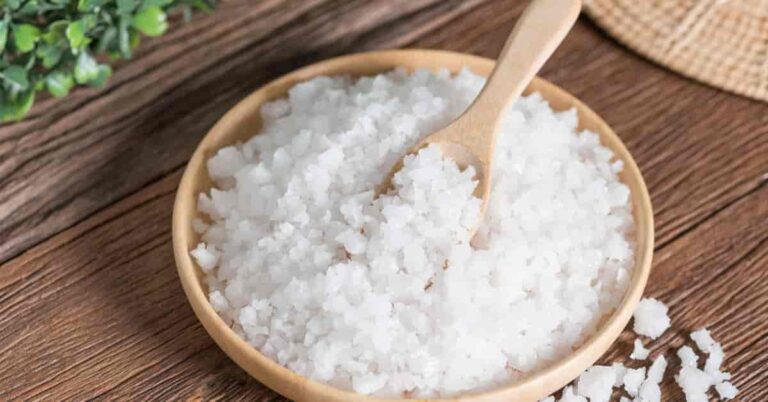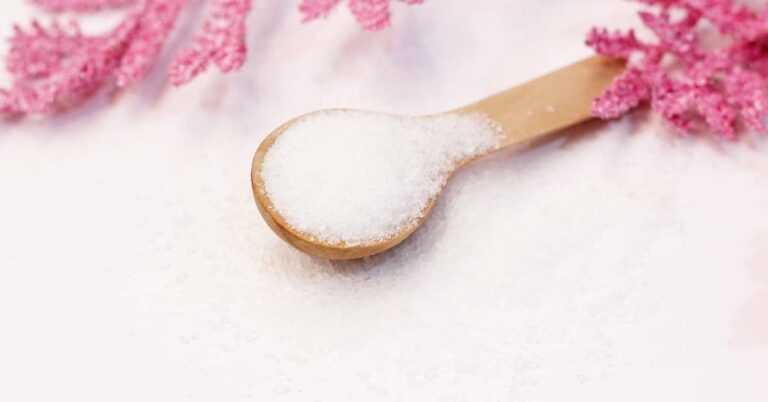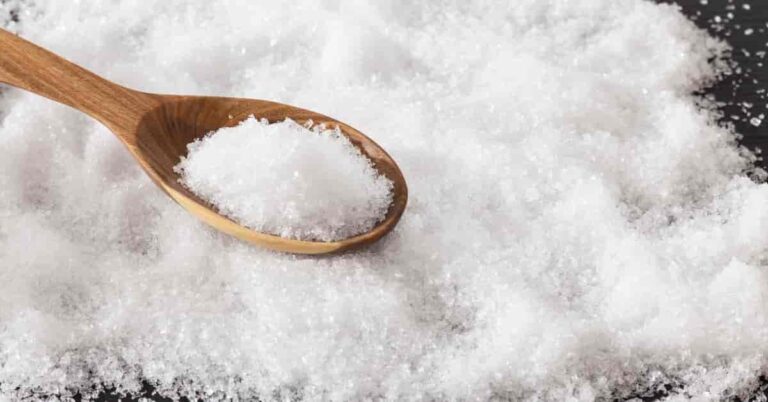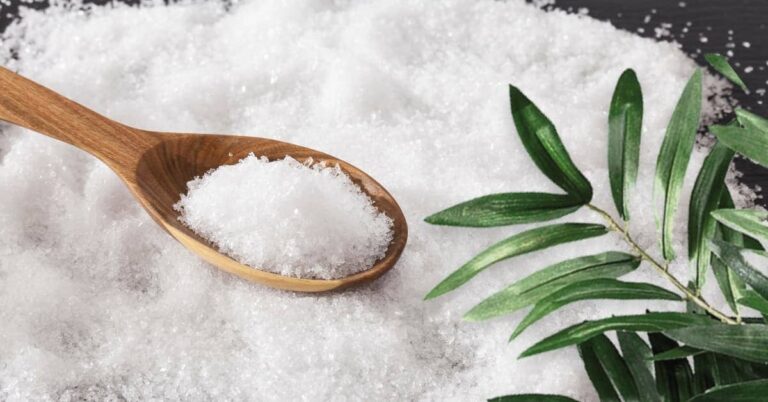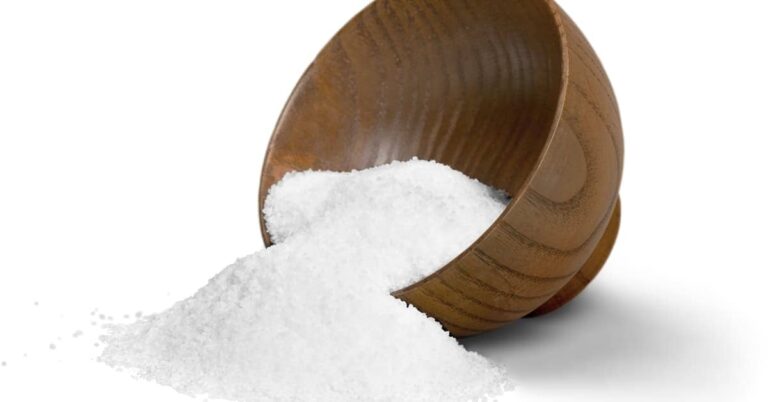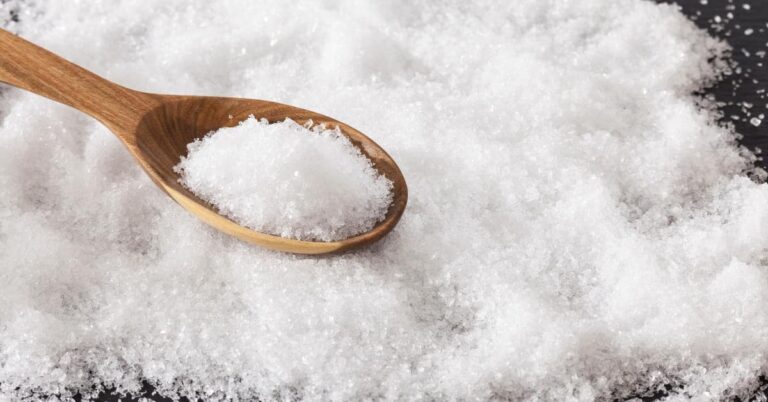Epsom Salt for Plants – Unveiling the Garden Secret for Greener Growth
Epsom salt, a secret garden gem, has long been cherished for its ability to enhance plant growth and vitality. Its unique composition, primarily magnesium and sulfur, caters to the critical needs of both indoor and outdoor plants, promoting healthier and more robust growth. The use of Epsom salt fertilizer, particularly noted on the fertilizer label, is a testament to its efficacy in gardening practices. However, gardeners are advised to decrease the quantity for Epsom salt applications to avoid overwhelming their green companions.
The versatility of Epsom salt extends beyond traditional gardening, offering a boost to indoor plants that often lack exposure to natural nutrient sources. This natural mineral not only supports the foundational needs of plants but also addresses specific deficiencies, ensuring a balance that fosters a thriving garden ecosystem. Its role in gardening is both profound and multifaceted, proving to be more than just a simple additive but a critical component for greener growth.
Delving Into the Essence of Epsom Salt
Epsom salt, a natural mineral, boasts a simple yet powerful formula: magnesium and sulfur. These essential nutrients are pivotal for plant health, aiding in everything from chlorophyll production to enzyme activation. Magnesium deficiencies in soil can lead to hindered growth and development, a problem Epsom salt on plants can address effectively. Adding Epsom salts to the garden can replenish levels of magnesium, ensuring plants absorb the nutrients they need from the soil.
The Scientific Underpinning of Epsom Salt
The magic of Epsom salt lies in its ability to supply plants with magnesium and sulfur, two essential nutrients crucial for their health and development. When plants suffer from a magnesium deficiency, their growth is stunted, and their leaves may yellow. Epsom salt, a natural mineral, contains hydrated magnesium sulfate, which can counteract magnesium deficiencies without exacerbating soil pH levels. This makes it a beneficial supplement for plants like tomato and pepper plants, which are particularly susceptible to nutrient deficiencies.
The Elemental Composition and Its Benefits
Epsom salt, through its supply of magnesium and sulfur, plays a significant role in plant health. These elements serve as vital components of plant food, contributing to the overall output of vegetation. Magnesium, for instance, is a cornerstone of chlorophyll production, essential for photosynthesis, while sulfur aids in the creation of vitamins and amino acids. Together, they ensure plants remain healthy, resilient, and productive.
Epsom Salt: A Marvel in the Garden
Epsom salts are a marvel in the garden, particularly for combating magnesium deficiency and balancing soil pH. Their application can transform a struggling garden into a lush, vibrant space. By addressing these key issues, Epsom salts ensure plants have the optimum environment for growth, leading to healthier, stronger, and more beautiful gardens.
Boosting Nutrient Absorption and Enhancing Photosynthesis
Applying Epsom salt in the garden does more than just correct nutrient imbalances; it enhances the plant’s ability to absorb vital nutrients from the soil, boosting their overall health and vigor. Furthermore, by contributing to chlorophyll production, Epsom salt plays a crucial role in optimizing photosynthesis, the process by which plants convert light into energy. This dual action makes Epsom salt an invaluable asset for gardeners aiming to achieve not only greener but also more bountiful plants.
The Multifaceted Benefits of Epsom Salt for Plants
Epsom salt fertilizers offer a plethora of benefits for plants, making them a go-to solution for gardeners. Besides providing abundant food, they help in correcting the yellowing of leaves and promoting greener foliage, thus enhancing the aesthetic appeal of both indoor and outdoor plants. This makes Epsom salt an indispensable tool in the gardener’s arsenal.
The Greening Effect: How Epsom Salt Makes Plants Greener
The greening effect of Epsom salt fertilizer on plants is undeniable. By supplying essential magnesium, it aids in chlorophyll production, the pigment responsible for giving plants their green color. This not only improves their appearance but also enhances their ability to perform photosynthesis more efficiently, leading to healthier and more vigorous growth.
A Micronutrient Powerhouse Providing Essential Elements
Epsom salt stands out as a micronutrient powerhouse, delivering essential elements that support plant health and growth. Its unique composition addresses and prevents magnesium and sulfur deficiencies, ensuring plants have access to the nutrients they require for optimal development.
Addressing Magnesium Deficiency: A Closer Look
Magnesium deficiency is a common challenge in gardening that can significantly impact plant health. Epsom salt, with its rich magnesium content, offers a simple yet effective solution to this problem. By facilitating the absorption of magnesium from the soil, it helps plants overcome deficiencies, leading to greener leaves and stronger growth.
Fending Off Unwanted Garden Visitors Naturally
Utilizing Epsom salt in the garden can also play a role in deterring unwanted visitors naturally. While primarily known for its nutritional benefits, its application can create an environment less inviting to pests, contributing to the overall health and protection of the garden.
Balancing Act: The Role of Epsom Salt in Soil pH Neutrality
Epsom salt can aid in maintaining soil pH neutrality, an essential factor for plant health. By preventing drastic fluctuations in soil pH, Epsom salt helps ensure that plants can access the nutrients they need without the risk of nutrient lockout. This balancing act is crucial for creating a stable environment conducive to plant growth.
Navigating the Use of Epsom Salt in the Garden
Effective gardening involves understanding the role of Epsom salt in maintaining soil pH. Its judicious use can support plant health by ensuring that the soil environment remains optimal for nutrient uptake.
Perfect Timing: Knowing When to Apply Epsom Salts
Timing is key when it comes to applying Epsom salts in the garden. Strategic application ensures that plants receive the benefits of magnesium and sulfur at critical growth stages, maximizing their impact on plant health and productivity.
The Ideal Dosage for Optimal Plant Health
While Epsom salt can significantly contribute to plant health, determining the ideal dosage is essential. Too much can harm plants, whereas too little may not provide the desired benefits. Finding the right balance is crucial for harnessing the full potential of Epsom salt in gardening.
Cases When Epsom Salt Might Not Be the Hero
While Epsom salt can be a boon for many plants, it doesn’t always wear the hero’s cape in every garden scenario. Its application must be approached with caution, as not all plants react positively to magnesium supplementation. In some cases, especially where the soil is already rich in magnesium, adding Epsom salt can do more harm than good, leading to nutrient imbalances that can stifle plant growth rather than encourage it.
Recognizing Plants That Disfavor Magnesium Supplements
Some plants have a natural disposition to thrive in low-magnesium soils, making them less receptive or even adverse to magnesium supplements like Epsom salt. For instance, native plants adapted to thrive in specific regional soils can suffer from magnesium-enriched conditions, which disrupt their natural growth processes. Understanding the specific needs of each plant in your garden is crucial to avoid inadvertently hindering their growth by adding unnecessary Epsom salt.
The Myth of Epsom Salt as a Panacea: Understanding Its Limitations
The belief that Epsom salt is a cure-all for garden woes is a myth that needs dispelling. While it can address magnesium deficiency and help in certain conditions, it’s not a universal solution for all garden problems. Overuse or unnecessary application can lead to soil imbalances, negatively affecting plant health. It’s essential to diagnose a plant’s specific needs before reaching for Epsom salt, ensuring that it’s the right remedy for the issue at hand.
Beyond Traditional Uses: Innovative Approaches to Epsom Salt Application
Exploring beyond its conventional role, Epsom salt finds its way into innovative gardening practices, demonstrating versatility that spans beyond just addressing nutrient deficiencies. Gardeners are experimenting with its use in ways that enhance plant health, prevent diseases, and even improve fruit and vegetable quality, showcasing Epsom salt’s potential to contribute positively to a variety of garden aspects when applied thoughtfully.
Epsom Salt: Not Just for Plants
Epsom salt’s benefits extend beyond the plant world, finding utility in broader garden health and maintenance practices. Its application can influence garden ecology positively, contributing to a healthier garden environment not just for plants but for the soil and beneficial insects as well, showcasing its versatility as a gardening aid.
Encouraging Blossom End Rot Prevention and Productivity in Tomatoes and Peppers
Tomatoes and peppers, often plagued by blossom end rot due to calcium deficiency, can benefit from Epsom salt through its role in enhancing nutrient uptake, including calcium. By improving plant health and facilitating efficient nutrient absorption, Epsom salt can help prevent the conditions that lead to blossom end rot, while also boosting the overall productivity and fruit quality of these crops, making it a valuable ally in the vegetable garden.
The Home Garden Trio: Coffee Grounds, Eggshells, and Epsom Salts
Combining coffee grounds, eggshells, and Epsom salts creates a powerful mix for enhancing garden health. Coffee grounds enrich the soil with nitrogen, improving soil structure and nutrient availability. Eggshells add calcium, vital for cell wall development in plants, thus correcting calcium deficiencies in the soil. Epsom salts, rich in magnesium, encourage healthy plants by increasing nutrient absorption and ensuring the soil’s pH remains balanced. Together, these ingredients form a nutrient-rich supplement that fortifies garden soils, promoting vigorous growth and resilience in plants.
The Verdict: Is Epsom Salt Good for Plants?
Epsom salt, scientifically known as magnesium sulphate, is a source of magnesium that significantly benefits garden plants, especially those deficient in magnesium. It enriches the garden soil, making nutrients more accessible to soil or plants, thus enhancing nutrient absorption and supporting vigorous plant growth. Its application improves seed germination, strengthens cell walls, and aids in the creation of chlorophyll. However, it’s crucial to use Epsom salt in moderation, as mix 1 part of Epsom salt with water can be sufficient for most applications, ensuring plants are not overwhelmed but receive just the right amount of magnesium for optimal health.
Debunking Myths and Confirming Facts
While Epsom salt is celebrated for its benefits, it’s essential to distinguish between myth and fact. Not all plants require additional magnesium, and not all soil conditions are improved by its application. Understanding the specific needs of your garden is critical to the effective use of Epsom salt.
Real-Life Success Stories: Gardeners’ Testimonials
Gardeners from various backgrounds share their successes with Epsom salt, highlighting its effectiveness in promoting greener, lusher plants. Many report improved flower blooming and fruit production, particularly in magnesium-hungry crops like tomatoes and peppers. These testimonials underscore the importance of targeted use, where Epsom salt addresses specific deficiencies or growth challenges, leading to noticeable improvements in plant health and yield.
Nurturing Your Garden with Epsom Salt: A Comprehensive Guide
Integrating Epsom salt into your garden care regimen can significantly benefit plant health, but it requires a strategic approach. Understanding when and how much Epsom salt to apply is crucial. A general guideline is to mix 1 tablespoon of Epsom salt per gallon of water for use every month during the growing season. This practice ensures that plants receive an optimal level of magnesium without the risk of over-supplementation, fostering a thriving garden environment.
From Theory to Practice: How to Correctly Use Epsom Salt
Correct application of Epsom salt involves diluting it in water and applying it directly to the soil or as a foliar spray. This method ensures that magnesium directly reaches the plants that need it most.
Tailoring Epsom Salt Use to Specific Plant Needs and Soil Types
Every garden is unique, with specific soil types and plant needs. Some soils may be naturally rich in magnesium, requiring little to no additional Epsom salt supplementation. Conversely, gardens with magnesium-deficient soils can see dramatic improvements from Epsom salt applications. Understanding your garden’s specific requirements—through soil testing and observing plant health—enables targeted interventions, ensuring that Epsom salt applications promote optimal plant growth and soil health.
Greening Your Garden with a Pinch of Epsom Salt: A Final Reflection
Integrating Epsom salt into gardening practices offers a simple yet effective method to nurture plants towards healthier growth and greener foliage. This chemical compound, when used judiciously, can lead to plants that grow bushier and produce more flowers, attributing to a vibrant garden scene. It’s important to note, however, that Epsom salt serves as a supplement to regular fertilizer for plants, providing magnesium and sulfur to address deficiencies without replacing the comprehensive nutrition plants require from a balanced fertilizer and a well-prepared potting mix. While Epsom salt for gardening has been celebrated for its benefits, including promoting greener leaves and aiding in the battle against calcium and sulfur deficiency, gardeners should apply it with care. Excessive use, especially on soil that already has sufficient magnesium, or spraying Epsom salt directly on plant leaves can cause leaf scorch or mineral contamination, counteracting its potential benefits. Therefore, a pinch of Epsom salt, complemented by informed gardening practices, can indeed make a significant difference in achieving a lush, thriving garden.
